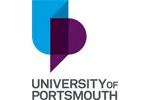

| The award | How you will study | Study duration | Course start | Domestic course fees | International course fees |
|---|---|---|---|---|---|
| BA | Full-time, Sandwich | 3 - 4 years | September | - | - |
Overview
Blend your love of film with your passion for writing on our BA (Hons) Screenwriting degree course.
You'll write scripts, see your work produced on screen, study screenplays and hone your writing skills with industry-experienced lecturers and mentors. You'll explore theories and genres of film and writing through history, study how they might evolve in the future, and experience the craft of filmmaking both as critic and creator.
Through close integration with our film production degrees, you'll discover how screenwriting interconnects to other specialisms within filmmaking, preparing you to write short stories, create scripts and produce screenplays with industry-wide insight.
You'll have the chance to learn practical production skills (such as camera work and editing) that'll enrich your ability to tell stories through film and enable you to produce your own screenplays from start to finish. Collaborating with drama and performance students, you’ll see your scripts brought to life on screen.
Once you graduate, you'll have skills that will set you on the path for a career in the creative sector, particularly the film industry as a screenwriter, script editor, researcher, producer or showrunner. Other career paths include journalism, marketing, public relations and teaching.
Course highlights
Careers and opportunities
The UK film and TV industries are thriving - production hubs have formed across the country in locations including Liverpool, Glasgow, Cardiff and Birmingham, and a record-breaking £5.6 billion has been invested in new content for the big and small screens since 2020 (British Film Institute).
As well as preparing you for opportunities as a new screenwriter [soaps and children’s TV are both great starting areas for new writers], this degree will make you an excellent candidate for other related roles in this flourishing industry.
You'll have the critical awareness, creative ability and project management skills to go after graduate roles in script editing, researching, development production and showrunning, or to work in other creative media besides film, television and the stage, such as video games and graphic novels.
You can also continue your studies to postgraduate level or take further teacher training to work in education.
Graduate areas
Areas graduates from our creative industries courses have worked in include:
Graduate roles
Roles graduates from our creative industries courses have gone onto include:
Placement year (optional)
After your second or third year, you can complete an optional work placement to gain professional experience and enhance your skills. It's also a great incentive for employers once you graduate.
You can work for a company, organisation or agency, or you can go self-employed and start your own business with fellow students or by yourself.
Whatever you decide – or even if you just want some employability advice – our exclusive Creative Careers team can support you every step of the way.
Creative Careers
Our in-faculty Creative Careers team has extensive recruitment experience and knows the creative sector well, making it easier for students to find placements within the creative industries.
They can guide you through every step of the application process, including:
The team will continue to give you support throughout your placement year.
Placement experiences
Placement students on our creative industries courses have worked in a variety of roles in commerce, publishing, entertainment, and education, and for some of the most well-known broadcasting and tech companies, such as Sky, Disney and Sony UK. Others have chosen to work for themselves.
Among these experiences are:
https://www.port.ac.uk/study/undergraduate/undergraduate-fees-and-student-finance
12-120 points to include a minimum of 2 A levels, or equivalent. A relevant qualification or experience in English/Creative Writing/Journalism/Media or Film Studies is required. Applicants without relevant qualifications will be asked to provide a portfolio to support their application.
English language proficiency at a minimum of IELTS band 6.0 with no component score below 5.5.
Below are some suggested courses at other providers that you may also be interested in:
Preparatory Courses in English for Degree Studies (Medical, Business, Architecture and Engineering, Psychology, English and American Studies) UG:Foundation, UG:Foundation, UG:Foundation
University of PĂ©cs
Find out moreConsider a Foundation or Pathway course at University of Portsmouth to prepare for your chosen course:
If you do not meet the entry requirements for this course then consider one of these courses from another institution:
There are 493 other courses listed from University of Portsmouth. A selection of these are displayed below:
Join the Сưłć´«Ă˝ email list and never miss a chance to turn your study abroad dreams into reality!

Find out more about studying in the United Kingdom